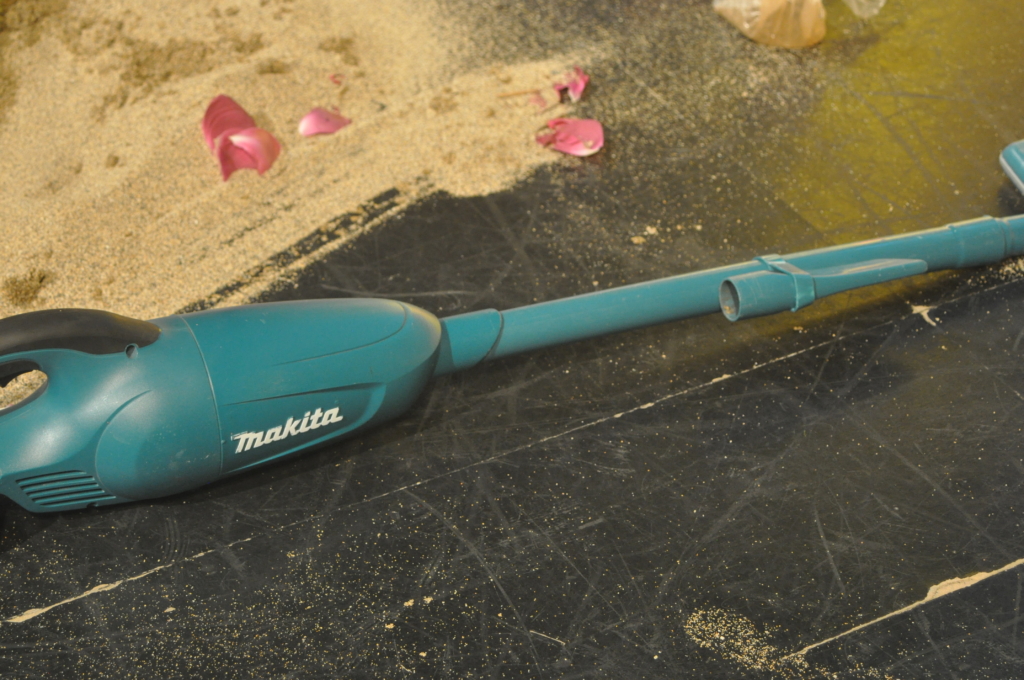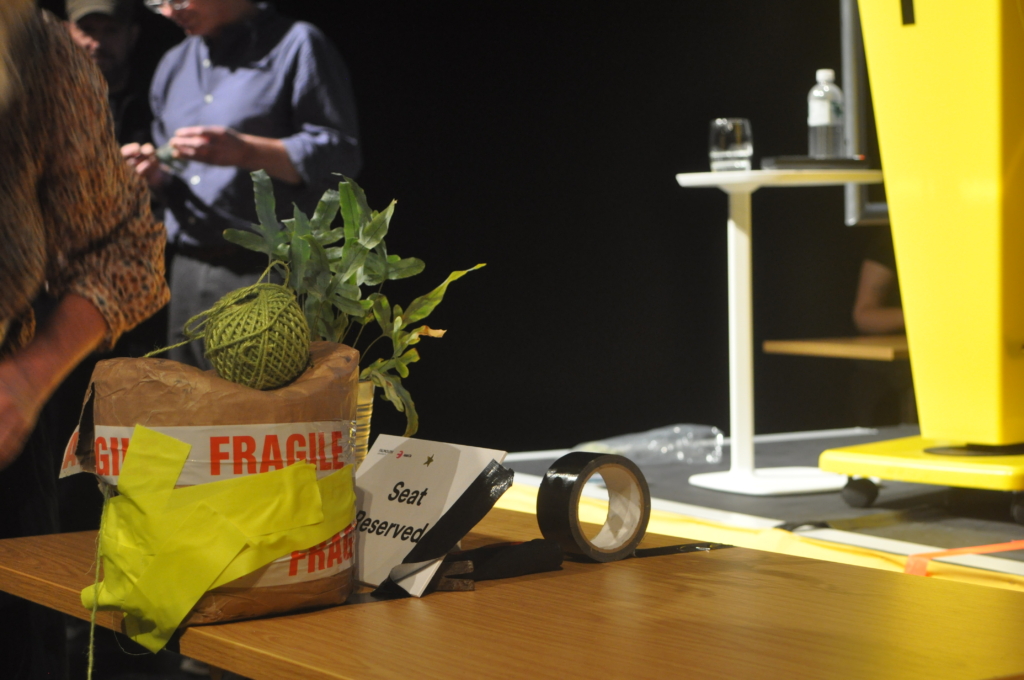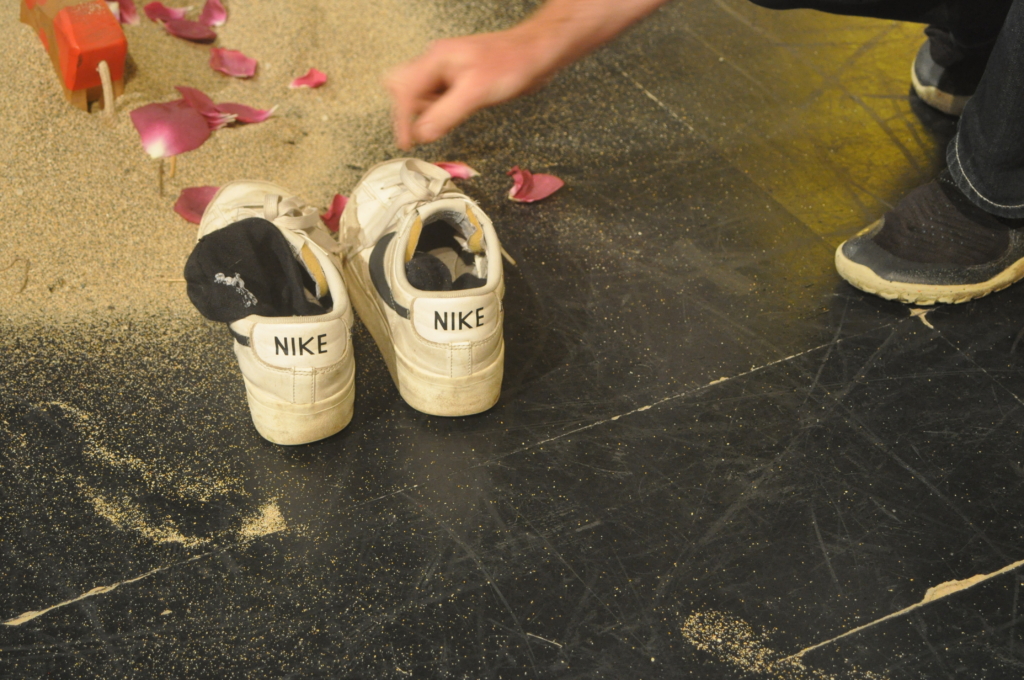“the pervasive role of the aesthetic is suggested by its root meaning of ‘feeling’ – not just any kind of feeling, but ‘shaped’ feeling and sensitive perception. And it is suggested even more by its opposite, anaesthetic, “lack of feeling” – the condition of living death. The more attuned we are to the beauties of the world, the more we come to life and take joy in it.”
Yi-fu Tuan, Passing, Strange and Wonderful, 1993.
Object Relations, a workshop for a theatre hall populated by the academic and technical community of Falmouth University, with a fair percentage of the population joining via MSteams, several of whom highlighted the televisual, almost gameshow-like aspect of the event. It begins with a rambling introduction that offers up a series of academic positions that create a sort of venn diagram pivoting around the creation of a stage area and a few simple rules, a toolkit and some awkward silences.
Gertrude Stein was once quoted as saying “I know what I think when I see what I say” (Crickmay and Tufnell, 2005: 57) though this is an error purpetrated by the illusion of authority attributed to the then Professor of Performance Writing, John Hall at Dartington College of Arts where he was teaching alongside Chris Crickmay. The notion though, that one can only know what one is thinking when one articulates it into the world is used here as the opening position to create a framework for the thought that I know how I feel when I see how I act. A collision between a misremebered quote and a rarely articulated definition of aesthetics put forward by Tuan in the above quote.
Object Relations is a game, a performance, a workshop as a work of art, an element of my developing practice that has now been staged in several countries, contexts and theatres, whereby an understanding of performance is taken from Goffman’s prospect in The Presentation of the Self in Everyday Life whereby if “every society has a theatrical element” (Lutticken 2005: 17) then every individual must come to terms with their role on a stage. The stage however, in our role as educators, must be defined and understood through the lens of the youth of the given day, who, as Daisy Hildyard reminds us in her novel Emergency, have come to experience the world through an increasingly precarious and environemental lens whereby we all know that microscopic remnants of the plastic waste from the crisp packets we were involved with as children now circulate in the hearts of just born chicks on some pacific island or other (Hildyard: 2022, 72). We live in the time of the hyperobject, wherein no discipline can cling to the false objectivity of the enlightenment (Morton 2013), a temporally dispersed existence that binds us to geologic, micro and macro – scopic time; in this moment object relations functions as a workshop that invites these thoughts into the silent space of our present being, where we interact, respond and find a sense of agency again, within the weight of the world, rather than apart from it.


